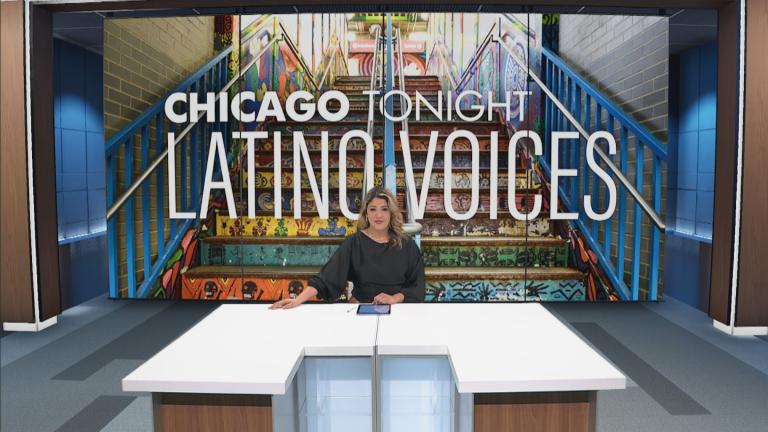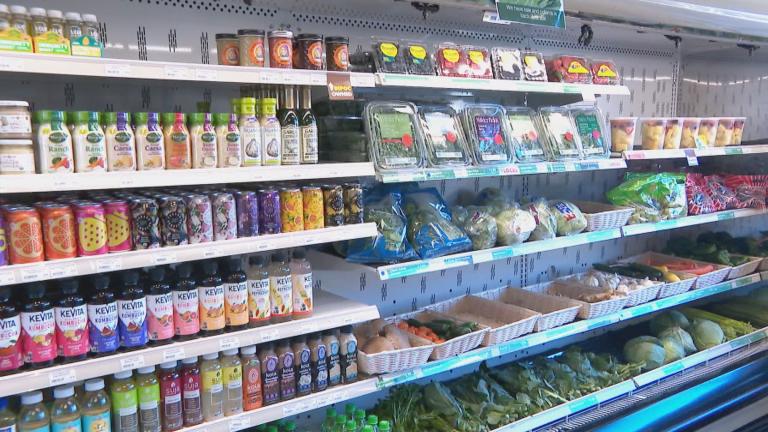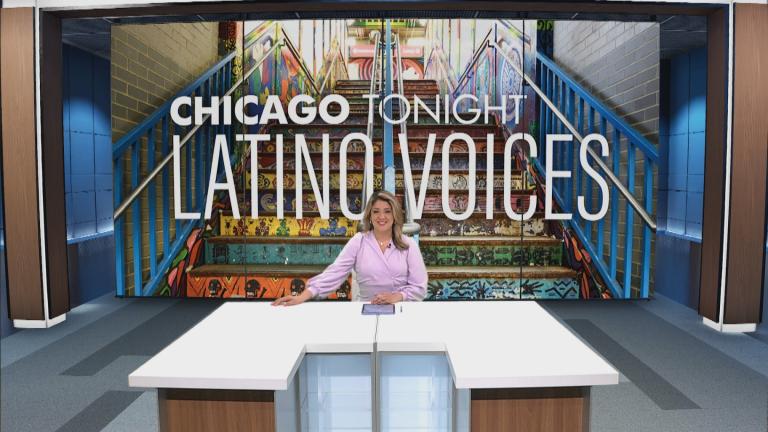For Chef Jaime Esparza, the culinary bug bit early.
“I remember being like seven years old staying up till midnight to watch ‘Iron Chef’. It was only out of Japan back then, so I had to beg my parents to stay up.”
But after years of grinding it out in restaurant kitchens — including the restaurant his family owned, where he ran the kitchen as a teenager — now Esparza is helping aspiring chefs learn that owning a restaurant isn’t the only recipe for success in the food world.
“I tell people, you don’t need a brick-and-mortar place, you don’t need that area to succeed. You can do food prep here at a kitchen that charges you $30 an hour to rent and all you need is a couple of licenses.”
Esparza is one of the chef instructors at Food Hero, a culinary school that operates on a social enterprise model, offering instruction on food preparation and entrepreneurship free of charge. Founder Javier Haro says the idea for Food Hero came in part from his own experience as the former owner of a tapas restaurant in Pilsen.
“I closed it after three years and it was heartbreaking for me, for my family, and the community,” Haro recalled. “And I asked myself just one question, what could I have done differently? I realized that I didn’t understand the restaurant, the food industry as much as I should have.”
Thus, it was that Haro conceived Food Hero – to help other would-be food industry entrepreneurs avoid the mistakes he made. Haro says Food Hero’s ultimate goal is advancing equity in the food industry by educating students on the wide variety of paths to entrepreneurship, including not only restaurant ownership, but also enterprises like catering services, packaged food, and street vending.
“The discrepancy I see in the industry is that there’s no upward mobility. There are a lot of Latinos and a lot of individuals that are in the same positions for five, ten years, no opportunities to become managers or have a sense of ownership in the business,” Haro said. “We want to develop individuals to pursue careers with good livable wages and be able to advance in the industry and at the same time we’re developing individuals for entrepreneurship.”
Executive chef instructor Austin Yancey says he strives to include all the necessary ingredients for food business success in his classes. That means everything from knife skills to recipe development to calculating menu costs.
“We care about education, training, mentorship — forever, entrepreneurship and innovation,” Yancey said. “Those are the five pillars of success of our company.”
On the day of our visit, Yancey was working with students as they prepared dishes for a private catered event.
“It’s a surprise birthday and the gentleman happens to be from Turkey. So we have the students research for homework, go research Turkish cuisine, come in with ideas. We help build a menu, we go through a menu exercise. And then we prep it all here in our professional kitchen, take it to the client’s home and then execute,” Yancey said. “Then the students get to learn how to build a private event in someone’s home from start to finish and then actually be there for the execution and the standing O and the tears and the whole thing.”
Haro says making this kind of education broadly accessible is what’s needed to make diverse ownership in the food industry achievable.
“Sometimes saying I want to own my own restaurant or start my own business feels so farfetched, but the reality is in today’s marketplace, with the technology and the tools that are available and the access to capital, I feel that to start a business is a lot easier today than it was a few years back,” Haro said. “And so we want to demonstrate and show those individuals that that dream is possible and attainable.”








